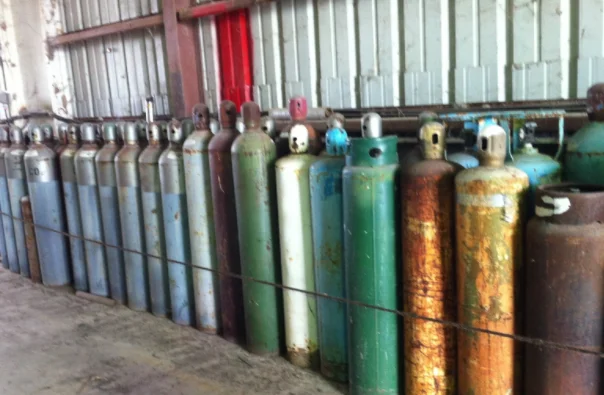The Dangers of Storing Gas Cylinders On Site
Cylinders are used in various industries to store and transport gases such as oxygen, propane, and nitrogen. While these cylinders are essential to many businesses, they can also pose significant safety risks if not stored properly. In this blog post, we’ll discuss the dangers of storing cylinders on site and what businesses can do to ensure the safe storage of their cylinders.
Risk of Explosion
One of the most significant dangers of storing cylinders on site is the risk of explosion. Cylinders can explode if they are damaged or exposed to heat, sparks, or flames. This can cause severe damage to property, injury, or even death. Improper storage of cylinders can also lead to leaks, which can cause fires or explosions.
Fire Hazard
Storing cylinders on site can also increase the risk of fire. Gas leaks from cylinders can ignite easily, especially when exposed to heat or sparks. In case of fire, the cylinders can also explode, causing severe damage to property and injury to individuals.
Environmental Hazards
Cylinders can also pose environmental hazards if not stored properly. Gas leaks can release harmful gases into the atmosphere, polluting the air and causing harm to human health and the environment. In case of spills, the cylinders can contaminate the soil and water, leading to serious environmental damage.
Compliance Issues
Storing cylinders on site can also lead to compliance issues. Businesses that store cylinders on site must comply with various safety regulations to ensure the safe storage of these cylinders. Failure to comply with these regulations can result in fines, penalties, or legal liability in case of accidents or injury.
Safe Storage Practices
To mitigate the risks associated with storing cylinders on site, businesses must implement safe storage practices. Some of the key practices include:
- Store cylinders in a well-ventilated area, away from heat sources, and combustible materials.
- Ensure cylinders are secured in an upright position to prevent tipping.
- Keep cylinders labeled with their contents and any other relevant information.
- Regularly inspect cylinders for leaks, damage, or signs of wear and tear.
- Have a plan in place for responding to emergencies, such as gas leaks, fires, or spills.
Storing cylinders on site can be dangerous if not done properly. The risks associated with storing cylinders on site include the risk of explosion, fire hazard, environmental hazards, and compliance issues. To ensure the safe storage of cylinders, businesses must implement safe storage practices and regularly inspect cylinders for leaks, damage, or signs of wear and tear. At Cylinder Recyclers, we specialize in the safe and responsible storage and recycling of cylinders. Contact us today to learn more about how we can help you store and recycle your cylinders safely.

